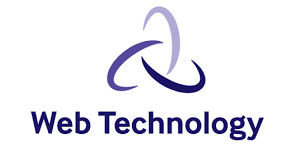
It’s not easy to achieve sustainable growth for your hotel in cutthroat hospitality industry of today. Hoteliers need to stay ahead of curve in order to draw in and keep customers in the face of constantly changing guest expectations, along with emerging technologies, as well as intense competition. This thorough guide offers five crucial hotel management pointers that will help your business succeed and expand over the long run.
1. Embrace Exceptional Guest Experiences
Using a Hotel Management System, In the hospitality industry, delivering exceptional guest experiences is essential. For it orders the audience’s brand loyalty and encourages complimentary word-of mouth endorsements even more effectively Afterwards, from pre-arrival emails to post-departure follow-ups, personalization is necessary to improve the guest experience. Hotels can suit services, amenities and special touches to individual needs and preferences by make the whole process really tailored. Guests own data and preferences are used to create an authentic in addition to unforgettable experience.
Encouraging employees via extensive training courses is also essential. Staff members who possess a service-oriented mind set, along with the necessary tools in addition to autonomy to surpass guests’ expectations, can promptly along with creatively resolve issues, resulting in a positive and lasting impression on guests.
Adding state-of-the-art technology is another practical tactic for improving visitor convenience and optimizing processes. Technologies can improve the overall guest experience while boosting productivity and cutting expenses. Examples of these technologies include smartphone check-in, keyless entry, smart room controls, as well as virtual concierge services.
2. Optimize Revenue Management Strategies
Revenue management tactics need to be freshened daily if you are going to maximize aspirations for income and steady market rate growth in any field of business and definitely so in the hotel industry. Dynamic pricing models, used by hotels, are able to adapt to changing market conditions, seasonality, or the competition’s pricing. It keeps the hotel at the best possible price it can by maximizing room rates for revenue generation even on a prescriptive basis.
One important part of good yield management is channel diversification. By using a mix of channels like metasearch engines and online travel agencies, hotels can open up their visibility to more potential customers by direct booking through the hotel’s mobile application or web site. The channels are continually evaluated and improved to find a balanced, economical distribution strategy. This ensures maximum revenue streams but has much lower distribution and commission costs.
Educating employees on how to spot and take advantage of cross- and up-selling opportunities is also essential for increasing revenue streams. Incorporating upgraded room categories, packages, or supplementary services that improve the overall guest experience can help hotels not only boost revenue but also give their customers more value in addition to customization. Giving employees the know-how and abilities to successfully cross- and upsell can generate a sizable amount of income.
3. Cultivate a Strong Brand Identity
Building a strong brand identity is essential for hotels looking to stand out from the competition and encourage repeat business. A strong tool for making enduring impressions as well as drawing in the intended target market is a clearly defined brand identity.
Establishing your hotel’s brand positioning precisely is the first step towards creating a powerful brand identity. To determine your unique value proposition, you must perform in-depth competitor along with market research. You can create a brand identity that distinguishes you from rivals in addition to making you stand out in the market by figuring out the core values, personality, and messaging that appeal to your target market.
One essential element of successful brand building is consistency. To build one’s brand and make your hotel known is also to see that the branding message remains uniform. Across all contact points such as the website, social media accounts and marketing materials; even on-site facility branding elements. It’s this very environment that encourages recognition as well as affection for your brand.
4. Foster Sustainability and Social Responsibility
Hotels must not only pursue sustainability in respect to the environment but also in terms of social conscience. Today, ecological concerns take precedence over ethical travel hotlists for many people. By adding environmental programs and community joint ventures, visitors who are concerned about ethicity can be attracted at the same time as the world benefits.
Embark eco-friendly practice can effectively reduce a hotel’s impact on the environment.Hotels can reduce their carbon footprint and promote green practices by setting sustainable procurement policies, operating waste prevention programs, or installing energy-saving technologies and water-saving measures.By spreading the word about these campaigns and inducing visitors to join in on all kinds of associated sustainability schemes people will internalize very easily not only an ethos for living harmoniously with nature but also some common duties they owe that come with it.
5. Nurture a Collaborative and Innovative Culture
Success in the quickly changing hospitality industry of today depends on your organization’s capacity to cultivate a creative in addition to cooperative culture. To stay ahead of competition, you can continually improve your offerings in addition to open up new opportunities by embracing creativity, and advocating for change, as well as giving your team the freedom to do so.
Create a space where having frank conversations is not just accepted but actively encouraged. Provide forums along with channels so that workers can freely express their opinions, suggestions, and worries without worrying about the consequences. Encourage an environment of openness as well as attentive listening where all opinions are respected and heard, regardless of status or position. This free flow of ideas can improve team cohesiveness and inspire creative solutions.
Invest in continuing education and professional development initiatives to give your staff access to the newest techniques, and expertise, as well as knowledge in the field. Promote knowledge-sharing and cross-functional cooperation to foster an environment where learning permeates the entire company rather than being contained in silos. This attitude of constant learning will foster innovation and adaptability in society in addition to fostering personal development.
Conclusion
These five pms hotel management suggestions can help you set up your business for long-term success and sustainable growth. Recall that delivering great guest experiences on a regular basis, maximizing revenue strategies, building a strong brand identity, accepting sustainability and social responsibility, and encouraging a creative as well as cooperative culture within your company are all essential to attaining long-term growth.






